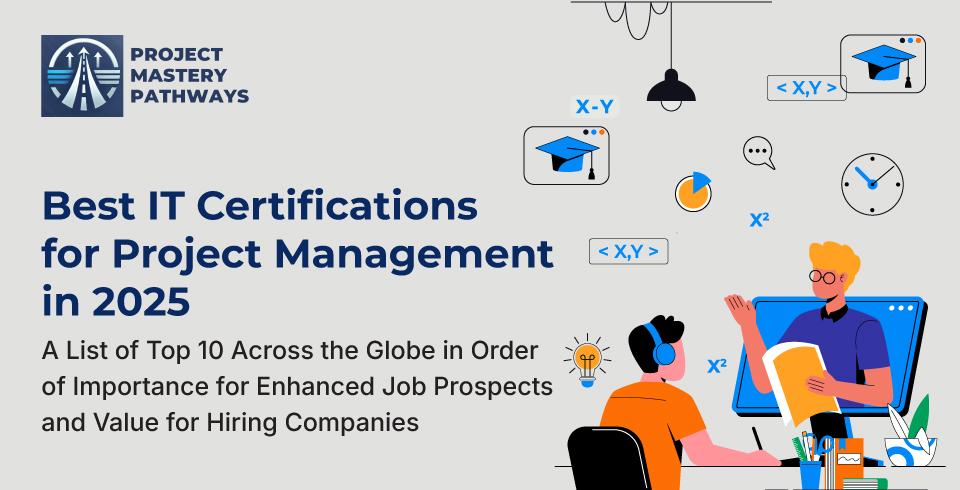In today’s competitive IT landscape, choosing the right certification can make or break your project management career. With over 25 million new project professionals needed globally by 2030 and IT project management roles showing unprecedented growth, the stakes have never been higher. Are you investing in certifications that actually deliver ROI, or are you simply collecting credentials that recruiters overlook?
The challenge for aspiring IT project managers isn’t just finding certifications – it’s identifying which ones truly matter to hiring companies and translate into tangible career advancement. This comprehensive guide reveals the top 10 IT project management certifications ranked by their global importance, market value, and direct impact on job prospects in 2025. By the end of this article, you’ll know exactly which certifications to prioritize based on your career stage and how to strategically build a certification portfolio that commands attention from top-tier employers.
Understanding the Strategic Value of IT Project Management Certifications
The intersection of IT expertise and project management skills creates one of the most valuable professional profiles in today’s market. IT professionals who hold project management certifications report median base annual salaries of almost $116,000, with the top 25 percent earning at least $139,000. This significant earning premium reflects how organizations increasingly value professionals who can bridge technical complexity with strategic project delivery.
Global market demand drives this certification value. Project management job listings are expected to grow 7% by 2033 according to the Bureau of Labor Statistics, faster than the national average. In IT specifically, the rapid adoption of cloud technologies, DevOps practices, and agile methodologies creates unique opportunities for certified professionals who understand both technical implementation and project governance.
Hiring companies prioritize certifications that demonstrate specific competencies aligned with their operational needs. Organizations that embrace agility and adaptability outperform their counterparts, resulting in increased value for certified professionals who can lead digital transformation initiatives. The certifications in our top 10 list represent those most frequently mentioned in job descriptions, valued by technical recruiters, and associated with measurable salary increases.
Industry transformation also influences certification value. As businesses prioritize structured project management practices and digital innovation, certified professionals stand out significantly in competitive job markets. Understanding which certifications align with industry trends ensures your professional development investments deliver maximum career impact.
The Elite Tier: Certifications 1-3 for Maximum Career Impact
1. Project Management Professional (PMP®) – The Gold Standard
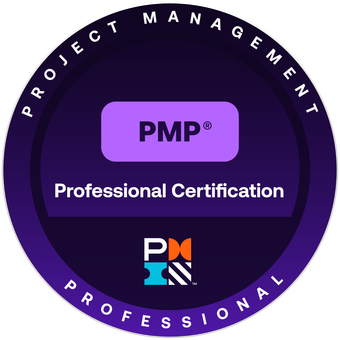
The PMP certification remains the undisputed leader in global project management recognition. Administered by PMI, this credential demonstrates your ability to lead projects in any industry with predictive, hybrid, or agile methodologies. PMP holders report 33% higher median salaries than those without certification across 21 countries surveyed, making it the highest ROI certification for experienced IT professionals.
Market Recognition: The PMP was mentioned in more than 22,000 US job listings on Indeed in January 2025, far exceeding any other project management certification. This widespread recognition translates to immediate credibility with hiring managers and technical recruiters across all IT sectors, from software development to infrastructure management.
Requirements and Investment: PMP certification requires 35 hours of project management education and either 36 months of project experience with a four-year degree or 60 months with a high school diploma. While the barrier to entry is significant, this exclusivity enhances its value proposition for mid-career and senior IT professionals.
2. PMI Agile Certified Practitioner (PMI-ACP®) – The Agile Authority
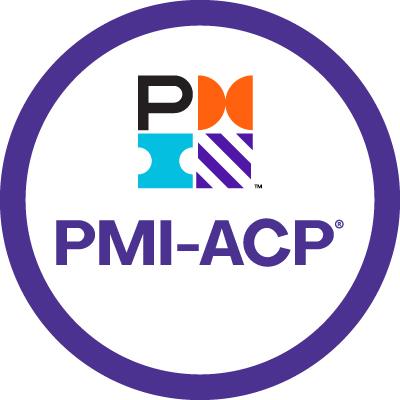
The PMI-ACP certification highlights your agile expertise with the industry’s only agnostic, experience-based, ISO-accredited exam. It validates your ability to drive excellence across methodologies, including Scrum, Lean, and Kanban. In IT environments where agile practices are standard, this certification demonstrates comprehensive understanding beyond single-framework knowledge.
Competitive Advantage: Unlike framework-specific certifications, PMI-ACP covers multiple agile methodologies, making certified professionals valuable across diverse IT environments. This adaptability is crucial as organizations often employ hybrid approaches combining different agile frameworks based on project requirements.
Experience Validation: PMI-ACP requires 21 contact hours in agile practices and 1,500 hours working on agile project teams, ensuring certified professionals have genuine practical experience rather than theoretical knowledge alone.
3. Certified Associate in Project Management (CAPM®) – The Entry-Level Powerhouse
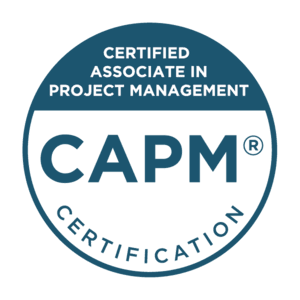
The CAPM certification ranked #1 among “The 9 Most In-Demand Professional Certifications” according to Entrepreneur Media. For entry-level IT professionals, CAPM provides immediate differentiation in competitive job markets while requiring no prior project management experience.
Strategic Foundation: CAPM serves as the ideal stepping stone to PMP certification while delivering immediate career benefits. IT professionals with CAPM can secure project coordinator, associate project manager, and PMO analyst positions with average salaries of $74,000, significantly higher than non-certified counterparts.
Accessibility: With only 23 hours of project management education required and no experience prerequisites, CAPM enables IT professionals to begin their certification journey immediately rather than waiting years to qualify for advanced certifications.
The Specialized Excellence Tier: Certifications 4-6 for Technical Leadership
4. Certified ScrumMaster (CSM®) – The Agile Leadership Standard
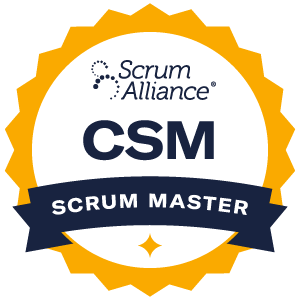
The CSM certification from Scrum Alliance focuses specifically on Scrum methodology mastery, making it essential for IT environments where Scrum is the primary agile framework. With over 450,000 certified practitioners worldwide, CSM demonstrates your ability to facilitate Scrum teams and drive agile transformations in software development environments.
IT-Specific Value: In software development and IT product teams, CSM certification directly aligns with daily operational requirements. The certification’s focus on team facilitation, sprint management, and agile coaching makes it particularly valuable for IT professionals transitioning into leadership roles within development teams.
Quick Implementation: CSM requires only a two-day training course and has lower barriers to entry compared to PMI certifications, making it accessible for IT professionals seeking immediate agile credentials to complement their technical expertise.
5. AWS Certified DevOps Engineer – Professional – The Cloud Operations Expert
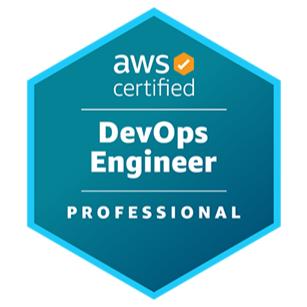
The AWS DevOps Engineer Professional certification validates technical expertise in provisioning, operating, and managing distributed application systems on AWS platforms. With average salaries of $164,012 globally, this certification represents one of the highest-paying credentials in IT project management.
Market Demand: As organizations accelerate cloud adoption, professionals who can manage both technical implementation and project delivery become invaluable. This certification demonstrates capability in SDLC automation, configuration management, and resilient cloud solutions – skills directly applicable to IT project leadership roles.
Technical Authority: Unlike traditional project management certifications, AWS DevOps Engineer Professional combines deep technical knowledge with operational excellence, positioning certified professionals for senior technical project management roles in cloud-first organizations.
6. PRINCE2® Foundation and Practitioner – The Structured Methodology Master
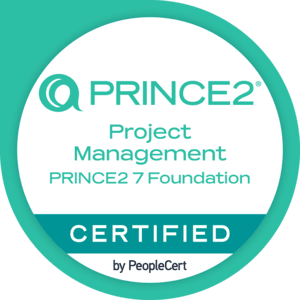
PRINCE2 certification provides comprehensive training in a structured project management methodology widely adopted in government and large enterprises. PRINCE2’s process-driven approach appeals to organizations requiring standardized project governance and detailed documentation.
Global Recognition: Particularly strong in European markets and government sectors, PRINCE2 certification demonstrates proficiency in formal project management processes. The Foundation level covers principles and terminology, while Practitioner validates ability to apply PRINCE2 in real-world scenarios.
Complementary Value: PRINCE2 often complements other certifications effectively, particularly for IT professionals working in regulated industries or large enterprises where formal project management frameworks are mandatory.
The Emerging Technologies Tier: Certifications 7-10 for Future-Ready Professionals
7. ITIL® 4 Foundation – The Service Management Expert
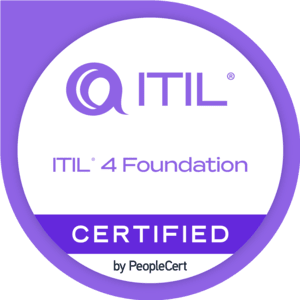
The ITIL 4 Foundation certification focuses on IT service management best practices, making it essential for IT professionals managing service delivery projects. ITIL’s emphasis on value co-creation and digital transformation aligns perfectly with modern IT project management requirements.
Service Integration: ITIL 4 bridges traditional project management with service management, providing certified professionals with skills to manage both project delivery and ongoing service operations. This dual competency is increasingly valuable as organizations adopt DevOps and continuous delivery practices.
Operational Excellence: The certification covers service value system, four dimensions of service management, and guiding principles that directly apply to IT project environments focused on delivering business value through technology services.
8. SAFe® Scrum Master – The Enterprise Agile Coordinator

The SAFe Scrum Master certification validates your ability to facilitate agile teams within the Scaled Agile Framework environment. As large organizations adopt enterprise-scale agile practices, SAFe-certified professionals become essential for coordinating multiple teams and managing dependencies in complex IT initiatives.
Enterprise Focus: SAFe addresses challenges specific to large-scale agile implementations, making this certification valuable for IT professionals in enterprise environments. The focus on program increment planning, agile release trains, and portfolio alignment directly supports complex IT project coordination.
Leadership Preparation: SAFe Scrum Master serves as preparation for advanced SAFe certifications and positions professionals for program-level leadership roles in enterprise agile transformations.
9. CompTIA Project+ – The Vendor-Neutral Foundation
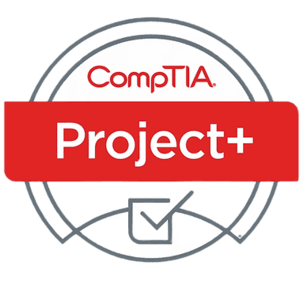
CompTIA Project+ provides vendor-neutral project management training focused on practical skills rather than specific methodologies. For IT professionals seeking foundational project management knowledge without committing to a particular framework, Project+ offers comprehensive coverage of essential concepts.
Technical Integration: CompTIA’s approach emphasizes practical application of project management principles in technical environments. The certification covers project constraints, communication, risk management, and quality assurance from an IT perspective.
Cost-Effective Entry: With lower costs and fewer prerequisites than premium certifications, Project+ enables IT professionals to explore project management while maintaining their primary technical focus.
10. Google Project Management Professional Certificate – The Modern Digital Approach
The Google Project Management Certificate represents a new approach to project management education, focusing on practical skills and modern tools. While not traditional certification, this program provides comprehensive training in project management fundamentals with emphasis on digital collaboration and agile practices.
Industry Relevance: Developed by Google, this program reflects current industry practices and includes training on modern project management tools and digital collaboration platforms. The focus on real-world application and portfolio development appeals to hiring managers seeking practical skills over theoretical knowledge.
Accessibility: Available through Coursera with flexible scheduling and lower costs than traditional certifications, this program enables working IT professionals to develop project management skills without significant time investment or career disruption.
Strategic Certification Planning for Maximum ROI
Building a certification portfolio requires strategic thinking rather than random accumulation. Start with foundational certifications like CAPM or Google Project Management Certificate to establish basic competency, then progress to specialized credentials that align with your specific IT domain and career goals.
Industry alignment should guide your certification choices. Software development professionals benefit most from agile-focused certifications like CSM and PMI-ACP, while infrastructure specialists might prioritize AWS DevOps Engineer and ITIL 4 Foundation. Understanding your target market ensures maximum certification ROI.
Timing considerations affect certification value. Earning foundational certifications early in your career provides immediate differentiation, while advanced certifications like PMP and specialized technical credentials deliver greater value with supporting experience. Plan your certification timeline to align with career progression milestones.
Your certification journey should reflect both current market demands and future industry trends. The convergence of project management with cloud technologies, DevOps practices, and agile methodologies creates unprecedented opportunities for strategically certified IT professionals.
Conclusion: Your Path to IT Project Management Excellence
The top 10 IT project management certifications represent proven pathways to career advancement and salary growth in 2025’s competitive market. From the universally recognized PMP to specialized credentials like AWS DevOps Engineer Professional, each certification serves specific career objectives and market positioning needs.
Success requires strategic selection based on your experience level, technical background, and career aspirations. Entry-level professionals should focus on accessible certifications like CAPM and Google Project Management Certificate, while experienced IT professionals can pursue premium credentials like PMP and PMI-ACP for maximum market impact.
Remember that certification value extends beyond salary increases to include enhanced credibility, expanded career opportunities, and professional network access. The investment in quality certification preparation and maintenance pays dividends throughout your career as you navigate the evolving IT landscape.
Ready to accelerate your IT project management career with the right certifications? Connect with expert guidance and comprehensive preparation resources by following PMPwithRay for detailed certification insights and practical career advice. For structured learning and certification preparation, explore the comprehensive project management courses available on Udemy to build the skills and knowledge that leading employers demand in 2025 and beyond.
Your certification journey begins with informed decisions – choose wisely, prepare thoroughly, and position yourself for the IT project management success you deserve.

